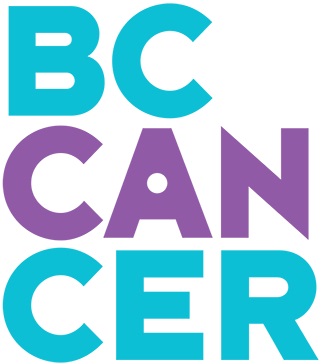Les problèmes de nutrition et d’alimentation
Authors:
Dr. Christine Maheu, RN, PhD ,
Ms. Rosemary Cashman ,
Kyla Johnson, Occupational Therapist, Segal Cancer Centre, Jewish General Hospital ,
Ms. Maureen Parkinson, Vocational Rehabilitation Counsellor, M.Ed. C.C.R.C, BC CancerDr. Christine Maheu, RN, PhD
Dr. Christine Maheu is an Associate Professor in the Ingram School of Nursing, Faculty of Medicine, McGill University. Dr. Maheu is also an Affiliate Scientist at the University Health Network and the University of Toronto. At McGill University, she teaches research methods, supervises graduate students (masters, doctoral, post-doctoral), mentors practicing nurses and students in research, and conducts research in English and French. She has held research awards with the Canadian Institutes of Health Research, the Canadian Cancer Society, and the Canadian Partnership Against Cancer. These awards funded her research in psychosocial oncology, which focuses on developing and testing psychosocial interventions or measurements tools for various cancer populations. Additionally, in partnership with Ipsos Canada and funded by the Canadian Partnership Against Cancer, she is co-leading a nationwide survey of the needs of cancer patients for transition care from the end of their treatment to three years after their diagnosis. Dr. Maheu received awards for excellence in nursing research (2013, 2015, 2016) from Ovarian Cancer Canada, the Canadian Association of Nurses in Oncology, and the Quebec Association of Nurses in Oncology.
View all Cancer and Work team members
Ms. Rosemary Cashman
Ms. Rosemary Cashman is a nurse practitioner at the BC Cancer Agency and an Adjunct Professor in the Faculty of Nursing at the University of British Columbia. Her professional experience includes the care of lymphoma, lung cancer and brain cancer patients. She co-chairs the Patient and Family Advisory Council, which guides the brain tumour care program at the BC Cancer Agency. She has authored book chapters and articles related to the care of brain tumour patients and their families. Ms. Cashman was involved in developing and implementing a rapid-access radiotherapy clinic for the palliative treatment of lung cancer and she continues to work in this clinic.
View all advisory board members and expert writers
Kyla Johnson, Occupational Therapist, Segal Cancer Centre, Jewish General Hospital
Ms. Kyla Johnson, M.Sc.A., originally from Edmonton, Alberta, Kyla Johnson works as an Occupational Therapist at the Segal Cancer Center of the Jewish General Hospital. She holds a Master of Science in Occupational Therapy from McGill University. Her goal as a rehabilitation professional in Oncology is to enable people with cancer to be able to do what they want and need to do, in all stages of their cancer experience. Kyla helps develop strategies and accommodations to facilitate a return to meaningful life roles, including work. She is specialized in cancer-related cognitive dysfunction and runs a weekly group teaching strategies to improve daily cognitive functioning. Kyla also leads a volunteer yoga class for young adults with cancer. She lives in Montreal, Quebec.
View all advisory board members and expert writers
Ms. Maureen Parkinson, Vocational Rehabilitation Counsellor, M.Ed. C.C.R.C, BC Cancer
Ms. Maureen Parkinson is the province-wide vocational rehabilitation counsellor at the BC Cancer Agency. She has also been vocational rehabilitation counsellor at a public rehabilitation hospital and vocational rehabilitation consultant to insurance companies and the court system. She has instructed and facilitated Service-Canada-funded programs on job searching and career exploration. Ms. Parkinson has a Masters in Counselling Psychology, is a Canadian Certified Rehabilitation Counsellor, and completed the Certified Return to Work Coordinator Program through the National Institute for Disability Management and Research. She has developed return-to-work and job-search seminars for cancer patients and created the guidebook “Cancer and Returning to Work: A Practical Guide for Cancer Patients” as well as on-line articles about returning to work and school. She also co-authored a paper commissioned by the Canadian Association of Psychosocial Oncology, “Cancer and Work: A Canadian Perspective”.
View all Cancer and Work team members

Outre les nausées et les vomissements, plusieurs autres problèmes potentiels associés au cancer ou à son traitement peuvent toucher votre alimentation et les besoins en nutrition nécessaires au maintien de votre poids.
Votre équipe de soins pourra vous indiquer comment en éviter ou en limiter les effets. Cette équipe peut comprendre des oncologues, des chirurgiens, du personnel infirmier, des dentistes, des orthophonistes, des ergothérapeutes et des diététistes, capables de traiter des problèmes suivants :
- Le manque d’appétit
- Les problèmes de déglutition
- La modification du goût
- La sécheresse buccale
- La douleur et des ulcères buccaux
- L’extraction de dents avant un traitement contre le cancer
Conséquences sur le travail
Les problèmes d’alimentation peuvent entraîner une perte de poids, et donc causer de la fatigue. La perte musculaire pouvant en découler limitera la capacité d’effectuer des tâches exigeantes sur le plan physique. Il sera plus difficile de manger, ou les repas prendront plus de temps. Il se peut que vous deviez vous alimenter souvent pour ingérer assez de calories. Vous aurez donc besoin de pauses fréquentes au travail afin de manger régulièrement. L’extraction de dents peut entraîner une modification de l’apparence et réduire votre confiance lors d’interactions avec le public.
D’autres sources Internet proposent des conseils et des recettes portant sur la saine alimentation et le cancer :
- ELLICSR Kitchen Program, Princess Margaret Cancer Centre, University Health Network
- Savourer santé – Ce site, le premier en son genre au Canada, est conçu pour vous aider à participer plus activement à votre traitement contre le cancer. Il vise également à vous encourager à prendre soin de vous en adoptant une saine alimentation et en gérant certains des effets secondaires en lien avec le cancer et les traitements contre le cancer.
- Bien s’alimenter lorsqu’on a le cancer (PDF), Société canadienne du cancer
- Saine AlimentationOntario – Ce service donne des renseignements d’utilisation facile sur l’alimentation pour vous aider à faire des choix plus sains.
Mesures d’adaptation sur le lieu de travail
La modification de vos tâches et méthodes de travail :
- Demandez des pauses variables et prolongées pour répondre à vos besoins en alimentation.
- Demandez à prendre des compléments alimentaires sous forme liquide à votre poste de travail au cours de la journée pour combler vos besoins nutritionnels.
La modification de votre milieu de travail :
- Demander un lieu privé et tranquille où vous pourrez manger si vous êtes mal à l’aise devant vos collègues.
- Demander un lieu de rangement de l’équipement ou des fournitures nécessaires pour répondre à vos besoins alimentaires.
Suivant :
Retour à la liste des effets secondaires courants des traitements contre le cancer



